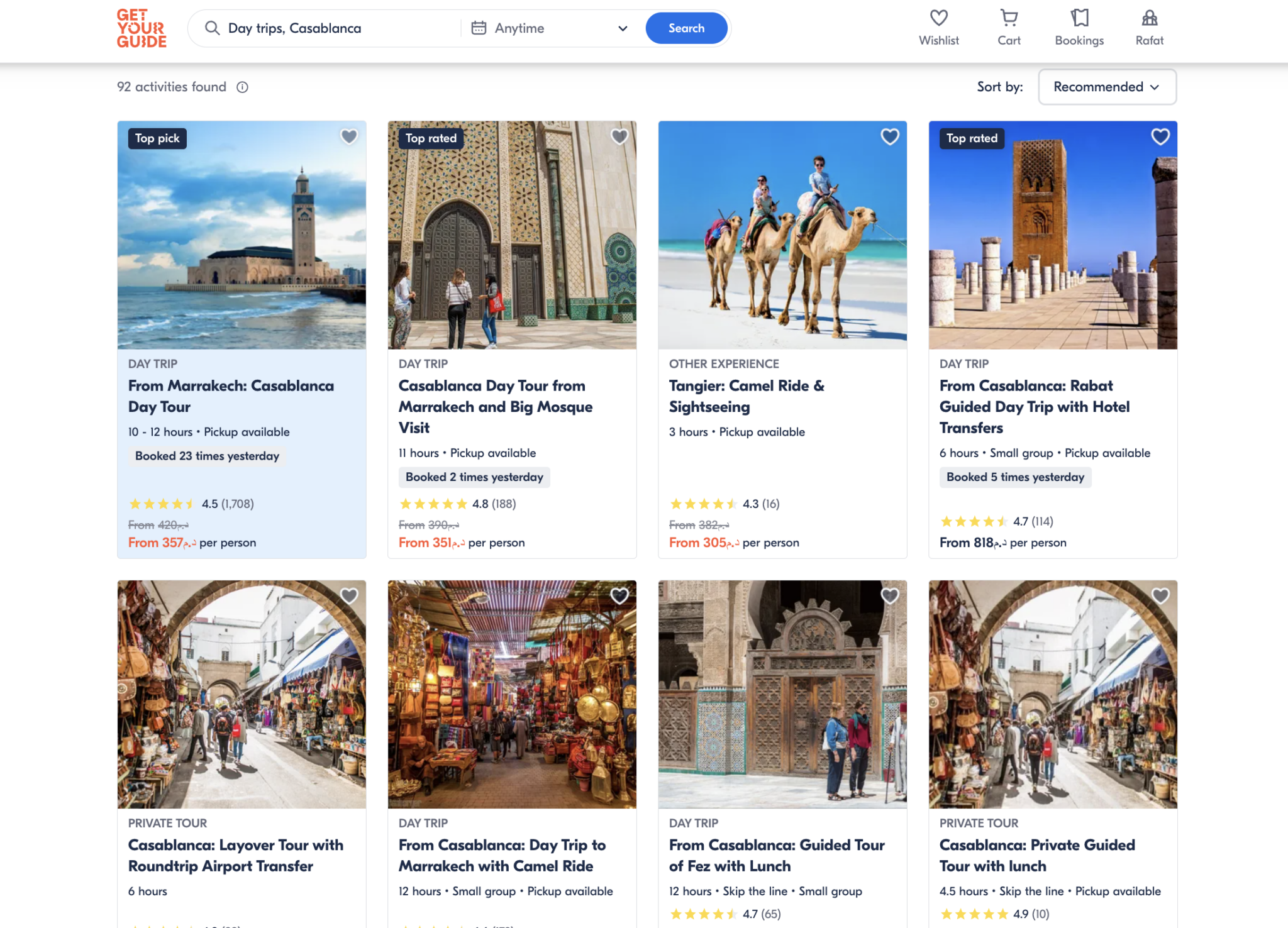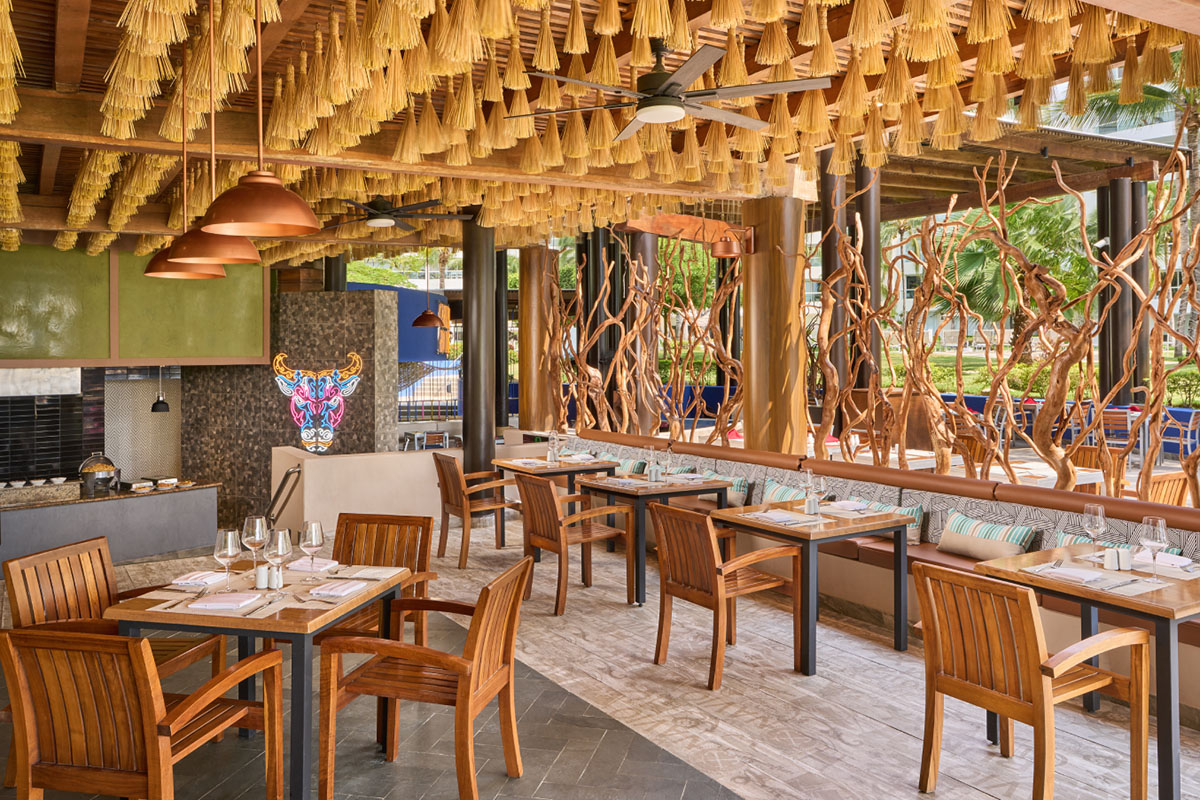The Strong Comeback Case for Hard-Hit Tourist Guides

Skift Take
While tourist guides are among the most decimated professional ranks in tourism during the pandemic, they may emerge among the strongest from the crisis.
The worth of a guide is expected to rise as the need for unique experiences and interactions deepens among travelers who have been relentlessly grounded by Covid-19. A great guide with the ability to tell a story, interpret a theme, connect clients with local communities, and create purpose and meaning in trips has become more valuable.
“The reason we enter into this profession is first and foremost a love for our cities, towns and destinations,” said Alushca Ritchie, president of the World Federation of Tourist Guide Associations, which represents guides from more than 100 countries. “Without this passion, our stories and knowledge won’t inspire.”
But whether cities, towns and destinations have the same passion for guides is questionable. Beyond lip service acknowledging their value, guides tend to be unsung heroes in the tourism chain.
The crisis perpetuates this observation. With one billion fewer tourists last year, according to United Nations World Tourism Organization (UNWTO) data, guides, many of whom are self-employed, have lost their sole income.
“Some countries managed to give some financial aid to those guides who qualified, while others received no assistance,” said Ritchie.
Hardship
The hardship for guides is severe and across all countries, said Stephan Roemer, CEO, Diethelm Travel Group Thailand, which employed freelance guides on top of a number of core guides on its payroll. Freelancers, in particular, were forced to look for alternative jobs but in some countries there were neither jobs nor government measures, Roemer said.
Across the world, guides scrambled to survive. The luckier ones were able to revert to their original qualifications such as teaching, or found work in other industries. Commonly, guides became interpreters. Or online sellers of everything from baked foods to ornamental plants. Or riders delivering food or packages.

Australian guide and family give a virtual experience of baking Anzac biscuits. Photo: Intrepid Urban Adventures.
In countries where domestic travel has gradually resumed, some guides could conduct local tours. Others, such as Vietnamese guide Chinh Vu, offer virtual tours and experiences.
“I am lucky to have virtual cooking tours through Intrepid Urban Adventures at Home, which reminds me that I am a tourist guide and I am passionate about it. Tour after tour, I try to add more local experiences and stories. I still learn and update my knowledge in case I forget it,” said Chinh.
Intrepid Urban Adventures at Home was launched in mid-2020, with most of the earnings going to guides and a small percentage to the company to support administration and other costs needed to run experiences. In February, it added family experiences where a local guide’s family joins in to give families around the globe experiences such as bake Anzac biscuits with a Melbourne family or design your own Mandala art with Delhi family.
“At a time when we are all missing human connection, it’s incredible that through online technology children can interact with children in other countries, ask questions about their lives and learn about the local culture and traditions,” said Klaudija Janzelj, managing director of Intrepid Urban Adventures.
As of February, Intrepid Urban Adventures at Home has more than 50 virtual tours and its guides have conducted more than 5,000 virtual experiences, the company said.
“The impact of the global pandemic has been immense, particularly in countries where there is no government support. When possible, it’s imperative that businesses find ways to support local tour guides,” said Janzelj.
Data on how the tourist guides market has been resized is unavailable. But Roemer believes the damage is done. “There was always a shortage of good guides in most destinations and this will worsen after Covid-19 as there’s simply not that many guides on the market anymore.
“For certain languages where guides were already in short supply, the situation can become critical. Younger people with foreign language capabilities could easily find jobs in other industries and may not return to the tourism trade,” he said.
Future of Tour Guiding
The tourism industry may face a crunch at first but Vietnamese guide Chinh “strongly” believes guides will return when demand grows firmer, although that may take years if popular predictions that travel would fully recover only in 2025 are spot-on.
But guides have survived crises and every disruption from mass guided travel books to Google Maps and self-guided digital tours, said Marcelo Risi, chief of communications for the UNTWO, which counts the guides federation as an affiliate. “Tourist guides have long shown an ability to adapt to changing realities and changing demands,” he said.
The pandemic has ushered in a stronger consciousness among tourists about health and safety, deeper recognition of negative impacts tourism can have on local communities and environments, and greater interest in segments such as local culinary cultures and multi-generational travel.
So the future sees guides picking up new commitments, such as acting as “safety officers,” said Ritchie. Or playing a part is making clear to tourists and policymakers how tourism delivers not just economic but social benefits for destinations and local people, said Risi.
Guides are indeed critical to helping tourists travel with trust and confidence, said Gregor Zajc, general manager of Blue Horizons Travel & Tours Philippines. “The pandemic-resilient tourist guide ensures that hygiene, sanitation, social distancing, temperature checks, wearing face masks, face shields and even PPEs [personal protective equipments] are now parts of a whole that makes the tour a safe and pleasant journey,” he said.
But with such mechanical protocols, there needs to be “humanness” and humanity in it all. Guides are at the center of this major trend, said Daniel Levine, executive director of Avant-Guide Institute New York who spoke at the guides federation’s first virtual conference in early March.
Luxury will be about the human touch and humanity, he said, urging guides to consider how they could make this their core offering.
Next-gen Guides
The pandemic has also accelerated the digital transformation of tour guides. Listening to speakers at the conference, the next-generation guides are marketing-savvy. They have a digital profile, direct relationship with clients and use social media such as TikTok to promote business.
They also understand the power of immersive experiences, using tools such as gamification, augmented reality and live-streaming while still providing the in-person offering. This not only allows clients get a lot more from their tour, but spread out people based on their personal interest. Less crowding is also ideal in post-pandemic travel.
They will still maintain their virtual tours as an additional revenue stream even when business has returned, and are able to package local tour experiences and market them well on their website and social media.
And guides of the future are “travel influencers” or “trip designers,” as TravStack calls them. The start-up provides guides with an easy to adapt suite of technology to build a digital portfolio, market their skills, customize tours, automate their workflow and interact with clients. TravStack is part of Singapore Tourism Board’s accelerator program.
“With travel businesses shutting down due to the ongoing crisis, speed of digital enablement is crucial,” said co-founder Santhosh Kalangi.
“The number of digital consumers and direct bookings is rising, as seen with the airlines and hotels. It is high time for tourist guides to go online and establish a direct relationship and trust with the customer. The ones who use this time to go online, curate rich experiences, build a niche and enable online bookings will thrive once travel reopens. I would love to see a new generation of tourist guides becoming online brands and travel influencers for a destination or an activity type,” he said.
Overdue
Perhaps most overdue of all, the pandemic is creating a closer relationship between tourism boards and tourist guide associations. Ritchie said she is seeing the start of this change.
“This is so important now as cities focus on reactivation. Why not use the very people who add so much value and play such a large role in the value chain of tourism?” she said.
“Governments and destination authorities have to understand that without a tourist guide, without this profession, who will showcase your heritage, your sites and your culture? The marketing spend of many destinations is massive but when tourists do arrive, who will take them by the hand and show them, this is why you have come to visit us?”
That passion, shown here in a marketing campaign, is something no virus can destroy, even if it has crushed livelihoods.




